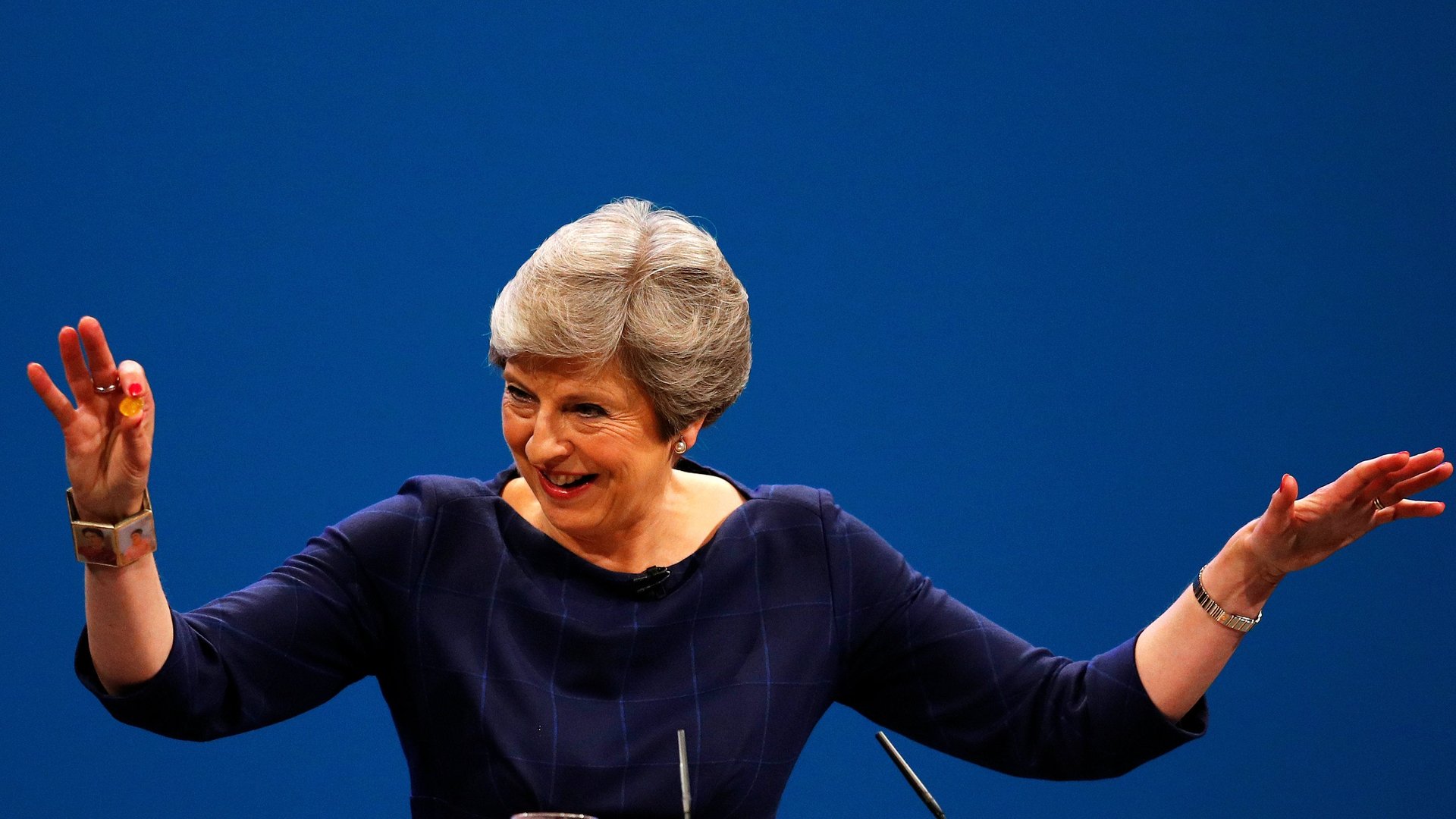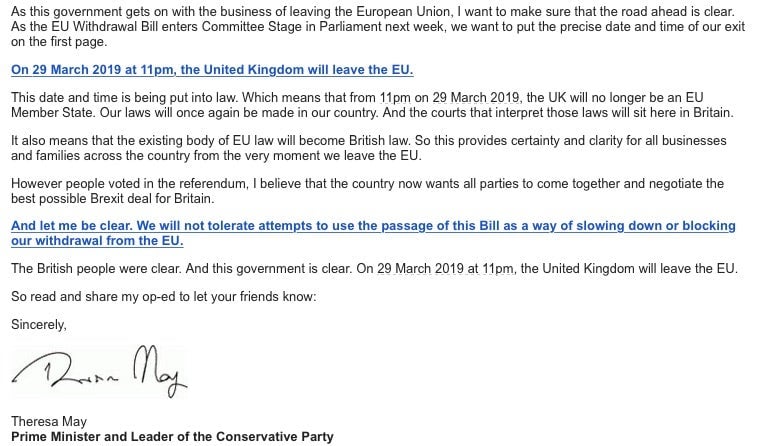Brexit Britain is wasting its time obsessing over a highly unlikely Article 50 reversal
It’s happening again. With only 16 months until Britain leaves the European Union, a couple of prominent political voices are dangling false hope in front of Remainers and those who regret their Brexit vote: Article 50 can be reversed and therefore Brexit can be cancelled.


It’s happening again. With only 16 months until Britain leaves the European Union, a couple of prominent political voices are dangling false hope in front of Remainers and those who regret their Brexit vote: Article 50 can be reversed and therefore Brexit can be cancelled.
Article 50 is a clause in the Lisbon Treaty that binds together the EU’s members. Triggering it, as the UK did in its nationwide vote in 2016, gives formal notification to the EU that a country will be leaving the bloc, starting the two-year negotiation process.
Former prime minister Gordon Brown told the BBC Nov. 9 that Britain is heading towards a “crisis point” because Leavers will realize that they won’t be getting what they were promised as it becomes clearer what kinds of effects Brexit will have on day-to-day life. He thinks that could trigger a massive change in public opinion could lead to an overall rethink, “may be scope for a reassessment.”
The man who wrote Article 50, Lord Kerr, the UK’s former ambassador to the EU, also resurfaced again to reiterate how it’s possible to reverse course. Speaking to BBC Radio 4’s Today program, he said:
At any stage we can change our minds if we want to, and if we did we know that our partners would actually be very pleased indeed. The Brexiters create the impression that is because of the way Article 50 is written that having sent in a letter on 29 March 2017 we must leave automatically on 29 March, 2019 at the latest. That is not true. It is misleading to suggest that a decision that we are taking autonomously in this country about the timing of our departure, we are required to take by a provision of EU treaty law.
But it’s not as simple as saying that the fact Brexit can be reversed means there’s a likely chance that it will.
Why it’s not so easy to cancel Brexit
Firstly, as legal blogger David Allen Green explained, “nobody knows for certain” if invoking Article 50 can be reversed, as there is no mention of revocation in the article text: “But then Article 50 is an atrocious piece of legal drafting. Written by diplomats, not lawyers. It shows.”
Peter Catterall, constitutional expert and professor of history and policy at the University of Westminster told Quartz that while it’s possible to reverse Article 50, there is very little chance that Brexit will be cancelled.
“I tend to agree, in the senses of, that [it’s more] of a decisions question because in the end it’s going to be a political decision,” said Catterall. “I think because of the way it’s written, there’s a deliberate ambiguity to it. So in a sense, it doesn’t really matter that people like Lord Kerr saying it can be reversed, what matters is if the political will is there to reverse it. It’s the only bottom line because there is no absolute cast-iron line that it can’t be reversed, so therefore it always can be. It comes down to politics, not legal process.”
“The question over whether the political will is there is, of course, a much more tricky thing. I think there is a political will from Brussels to accept a reversal, notwithstanding Leavers claiming ‘well we can’t go back now as they won’t accept a reversal,’ but I think the political will is much less apparent [in the UK],” he added.
It’s all about the Tories’ opinion—not public opinion

The UK government has never formally acknowledged if there is, indeed, an ability to revoke Article 50. A London-based lawyer, Jolyon Maugham, actually filed a lawsuit in an Irish court hoping to find the answer but as Quartz reported, he withdrew the suit after opposition from the Irish government and the unlikelihood that it would make it to the European Court of Justice—the only legal body that can answer the question definitively.
Prime minister Theresa May and her government have not publicly acknowledged that there is a possibility of reversing Brexit. The only inkling has come from Jessica Simor, a lawyer citing two unnamed sources, who has said May has received information that says Article 50 can be reversed and if done before March 29, 2019, the UK can remain in the EU under the same terms.
Even if this is true, the Conservative-led government is unlikely to do anything but drag the UK out of the bloc. May has doubled down on a hard break from the EU, which essentially equates to no deal. But she wrote in The Telegraph (paywall) this week, reiterating her plans to get “the best possible deal.” Meanwhile, her government is also has aiming to put in place legal hurdles to make it even more difficult to reverse Article 50 by amending the EU Withdrawal Bill with an addition of a set departure point of 11pm GMT on March 29, 2019.
She said in an email to all party members that she wants to “make sure that the road ahead is clear” and that “however people voted in the referendum, I believe that the country now wants all parties to come together and negotiate the best possible Brexit deal for Britain.”

Even if revoking Article 50 is definitively possible, politically, the Conservative government isn’t going to let it happen.
“Actually triggering a reversal of Article 50 is something that is unlikely to happen unless there is a very manifest change in public opinion. And although public opinion is changing, it is not changing fast or far enough that would make a reverse ferret more likely within the timeframe,” said Catterall.
“Would the Tory government do anything any? Because in the end, it’s not really about public opinion, it’s about the opinion of the Conservative party. When we talk about the Conservative party, we are talking about the parliamentary side, which are just finding their voices, and then the party across the country [members], in which the party is shrinking, aging, and getting increasingly Brexit-y. However many members of the government think about this, their minds will go to the reactions of their party members across all constituencies.”